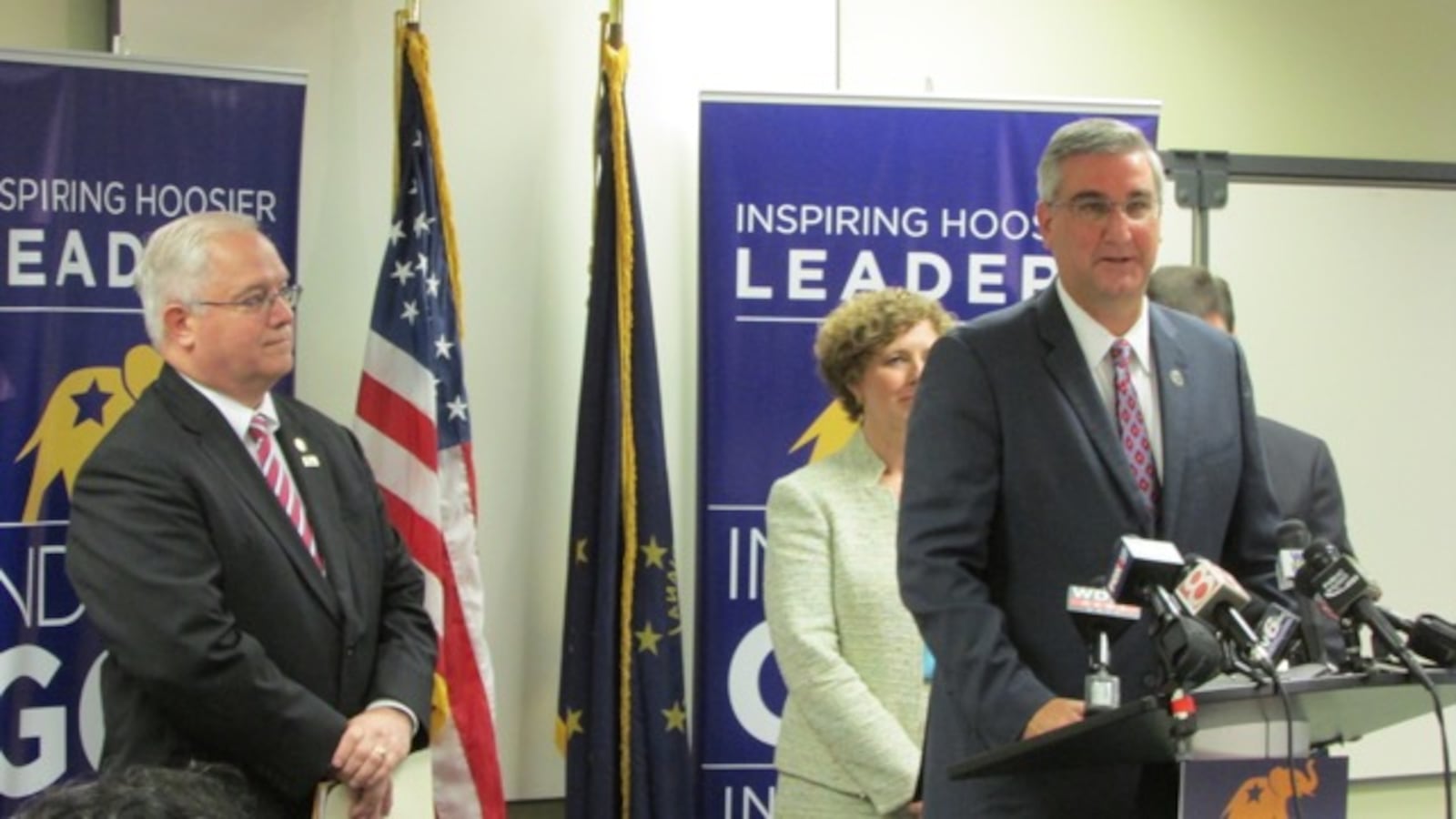Indiana’s Republican party today solved one political mystery by naming Lt. Gov. Eric Holcomb as its candidate for governor but, for educators, another huge question remains: Will Holcomb follow the lead of the last two Republican governors with a big push for changes in how schools are managed and teachers and students are judged?
As he was introduced as a replacement on the Republican ticket for Gov. Mike Pence, who has joined Donald Trump’s presidential campaign as his running mate, Holcomb hinted at a need for bipartisan cooperation on critical issues facing the state, especially education.
“I’m going to reach out to everyone, even if I don’t agree with them on a certain specific issue,” he said. “I won’t sacrifice my core principles but we need to be more together. ”
That could mean a more productive relationship with Democrats like state Superintendent Glenda Ritz.

Ritz has spent much of the past four years clashing with Pence over the direction the state would take on education policy. She’s up for re-election in November, facing Republican challenger Jennifer McCormick.
Democrats were quick to paint Holcomb’s candidacy as simply an extension of Pence’s agenda.
“Eric Holcomb wholeheartedly embraced the failed approach that embarrassed our state, cost us jobs and has left the middle class behind,” his Democratic opponent, former Indiana House Speaker John Gregg said in a statement, an apparent reference to Pence’s controversial support of religious liberty bills, angering gay rights activists who argued they endorsed discrimination.
While speaking to reporters, Holcomb repeatedly returned to the theme of building broad partnerships, saying partners are key to giving Hoosier kids the best educational opportunities. He offered no specifics about the policy direction he might take.
“I want to be the best partner I can be with anyone that wants to make sure every kid in Indiana has access to the best education available,” he said in response to a question that referenced Pence’s four-year battle with Ritz for control of the state’s direction on education. “I want Indiana to be known as that.”
Echoing Pence’s approach to education, Holcomb described education as important both for individual kids and and for the state’s long-term economic health.
“That is a big driver when it comes to, not just improving someone’s life and having access to all options, but also building our state,” Holcomb said. “We need it for a 21st century workforce. I am going to work to be the best partner I can with anyone — anyone — who says they want a Hoosier kid to have access to an extraordinary education.”
Republican appointees on the Indiana State Board of Education have blocked many of Ritz’s proposals and pushed the agenda of her predecessor, Tony Bennett including efforts to expand charter schools and vouchers and to hold students, teachers and schools accountable for test scores.
In his 19 years in politics, Holcomb has mostly worked behind the scenes for Republican office holders and for the Republican Party. He chaired the state party for more than five years before Pence appointed him lieutenant governor in March.
His views on education are not well known, but he was a key adviser to former Gov. Mitch Daniels for seven years while Daniels pushed for big changes in education in the state, including strongly supporting Bennett’s reform efforts.
The one education issue he was specifically asked about in today’s press conference was whether he would support expanded public funding of preschool.
“I am all for it when it’s responsibly done,” he said. “I’ll work toward it.”
The state’s pilot scholarship program to help poor families pay preschool tuition was one of Pence’s signature accomplishments. But he resisted calls to expand the program this year and was heavily criticized for pulling Indiana out of the application process for a multi-million dollar federal grant to support preschool. Earlier this summer he reversed his position and said Indiana should seek the federal grant.

